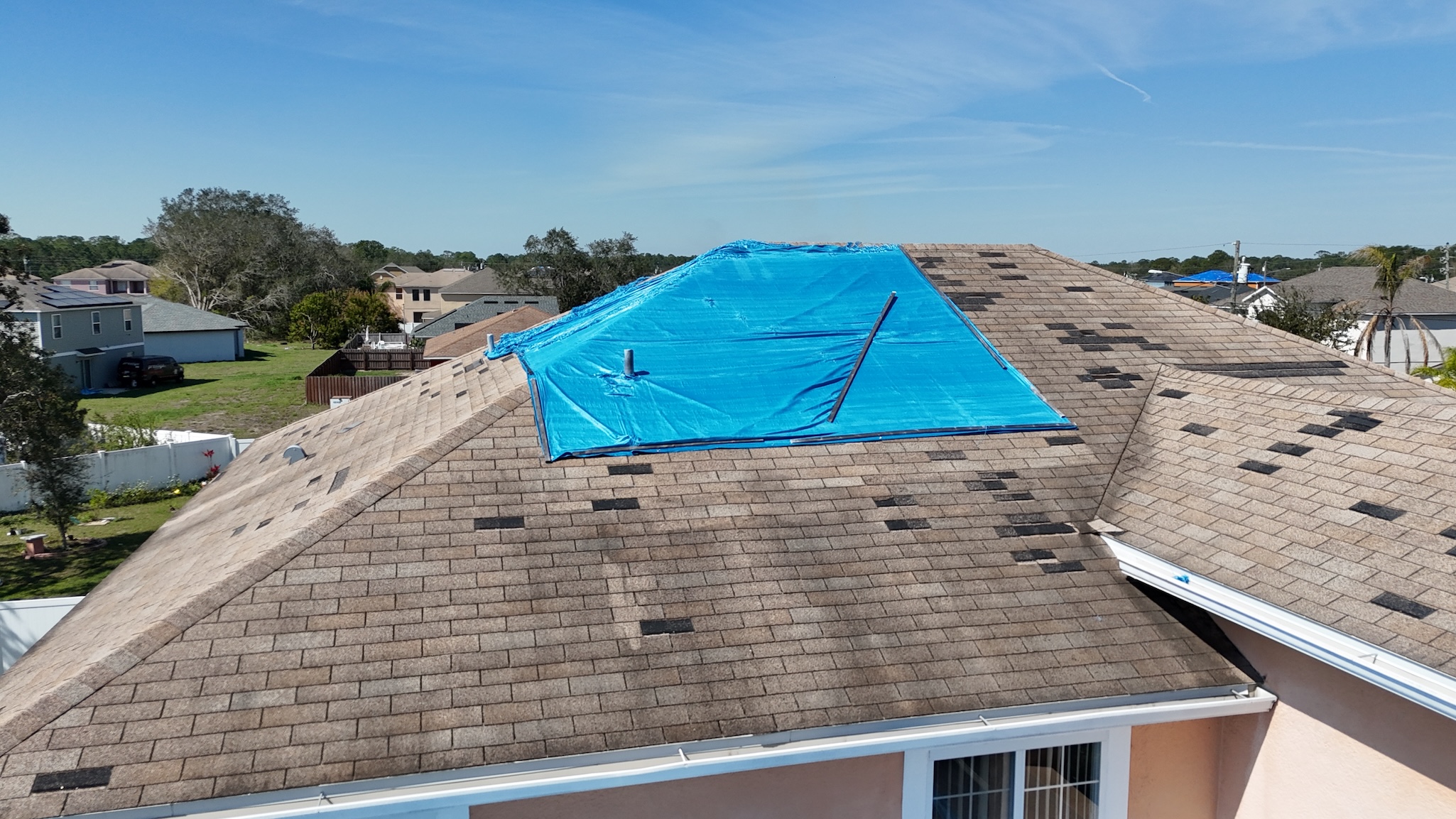🌪️ Roof Damage After a Hurricane: What to Do Next
A Step-by-Step Guide for Florida Homeowners
When a hurricane rolls through, your roof is your home’s first line of defense—and often the first to take a hit.
If you’re standing in your yard looking at missing shingles, roof leaks, or ceiling stains, you’re likely wondering:
“Is this covered by insurance?”
“How do I protect my home from more damage?”
“What should I do right now?”
Don’t panic. Here’s exactly what to do if your roof has been damaged after a hurricane in Florida.
✅ Step 1: Stay Safe and Avoid the Roof
Before anything else, ensure:
- Everyone is safe and accounted for
- There are no live electrical hazards from downed lines or water intrusion
- You do not climb on the roof to assess damage—leave that to the pros
If you notice water coming in:
- Place buckets or tarps indoors
- Move valuables away from leaks
- Shut off power to affected rooms, if needed
📸 Step 2: Document the Damage Immediately
Use your phone to take clear, timestamped photos of:
- Missing shingles or tiles
- Exposed underlayment or decking
- Water stains inside the home
- Damaged gutters, vents, or flashing
- Any tree limbs or debris that hit the roof
📷 These photos will help support your insurance claim.
🧰 Step 3: Call a Licensed Roofer for an Emergency Inspection
Before calling your insurance company, contact a licensed, local roofing contractor to perform a storm damage inspection.
Why?
- They’ll assess the damage safely and thoroughly
- You’ll get a professional damage report with photos
- You’ll know if a claim is worth filing
🛠️ Florida law allows emergency tarping and mitigation to prevent further damage—even before your claim is approved.
📝 Step 4: File an Insurance Claim (If Needed)
If your roofer confirms that the damage is storm-related, call your insurance company to file a claim.
Have ready:
- Your policy number
- Date/time of the hurricane
- Photos and inspection report
- A description of the damage
💡 Reminder: Florida’s new insurance laws give homeowners 1 year to file a claim after a hurricane—but sooner is always better.
🧾 Step 5: Meet With the Insurance Adjuster (With Your Roofer Present)
Your insurance company will schedule an adjuster to inspect your property.
✅ Have your roofer attend this meeting. They can:
- Point out all damage
- Ensure the scope of work is accurate
- Help justify a full roof replacement if needed
🏗️ Step 6: Get Emergency Repairs or Full Replacement
Once your claim is approved:
- Your roofer will pull permits
- Materials will be ordered
- Work will be scheduled ASAP
- You’ll receive insurance payments in stages (ACV + RCV, if applicable)
💰 If your claim is underpaid or denied, your roofer may help you request a claim supplement or refer you to a public adjuster.
⚠️ Bonus: What NOT to Do After Hurricane Roof Damage
🚫 Don’t sign anything with a storm chaser or out-of-state contractor without verifying credentials
🚫 Don’t file a claim before getting an inspection—it could be flagged as a “zero payout”
🚫 Don’t delay repairs—your policy may deny coverage for secondary damage (like mold) if you don’t act
🧠 Final Thoughts: Act Fast, Stay Informed
Roof damage after a hurricane is stressful—but manageable. The sooner you inspect, document, and take action, the more likely you’ll:
- Protect your home from further damage
- Get your roof replaced or repaired quickly
- Maximize your insurance payout
📞 Need a Hurricane Roof Inspection in Florida?
At TheBestRoofs.com, we’re here when it matters most. We offer:
✔️ 24-hour post-storm inspections
✔️ Emergency tarping services
✔️ Insurance claim support
✔️ Full roof replacement and repairs

